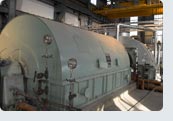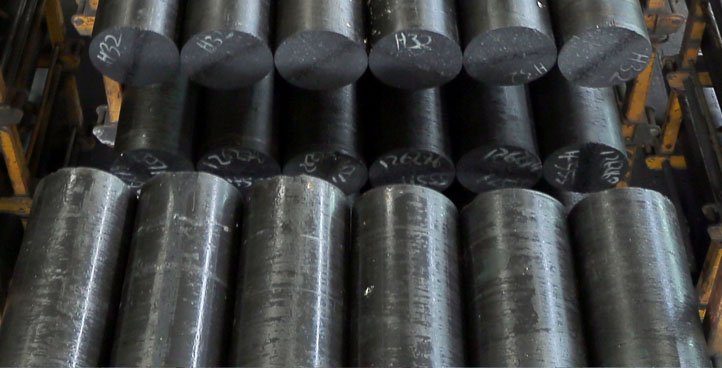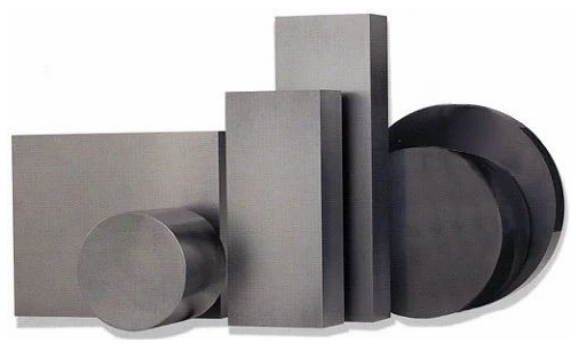
The principal raw materials used in the manufacture of electrodes are Needle coke and pitch.
The Needle coke is crushed, screened and mixed with pitch in controlled proportion at about 160°C. The paste, extruded through an extrusion press, is stored as ‘Green Stock’. The Green Stock is baked slowly to 800°C in specially designed furnaces. The meticulously controlled conditions ensure that the pitch cokes satisfactorily. Before coking, the pitch loses a considerable amount of volatile matter and the resulting electrodes are known as ‘Baked Electrodes’.

For high mechanical strength, density and current carrying capacity, the Baked Electrodes are impregnated with special pitch to fill completely the porosity which results from the volatile matter being driven off during baking. Following impregnation, the products are baked again to ensure complete coking of Impregantion Pitch.
The Baked Electrodes then undergo a process of Graphitisation, which involves heating them to temperatures in the range of 2800 – 3000°C in lengthwise graphitisation furnaces. The Graphitisation process itself lasts only 8 to 12 hours and the cooling down period takes several hours.

After being taken out from the furnace, the electrodes are subjected to very strict quality control checks before being passed for machining.
The machining operation involves turning of the electrodes to the required diameter and matching end sockets to accept threaded nipples. All sockets and nipples are machined to very close tolerances.




